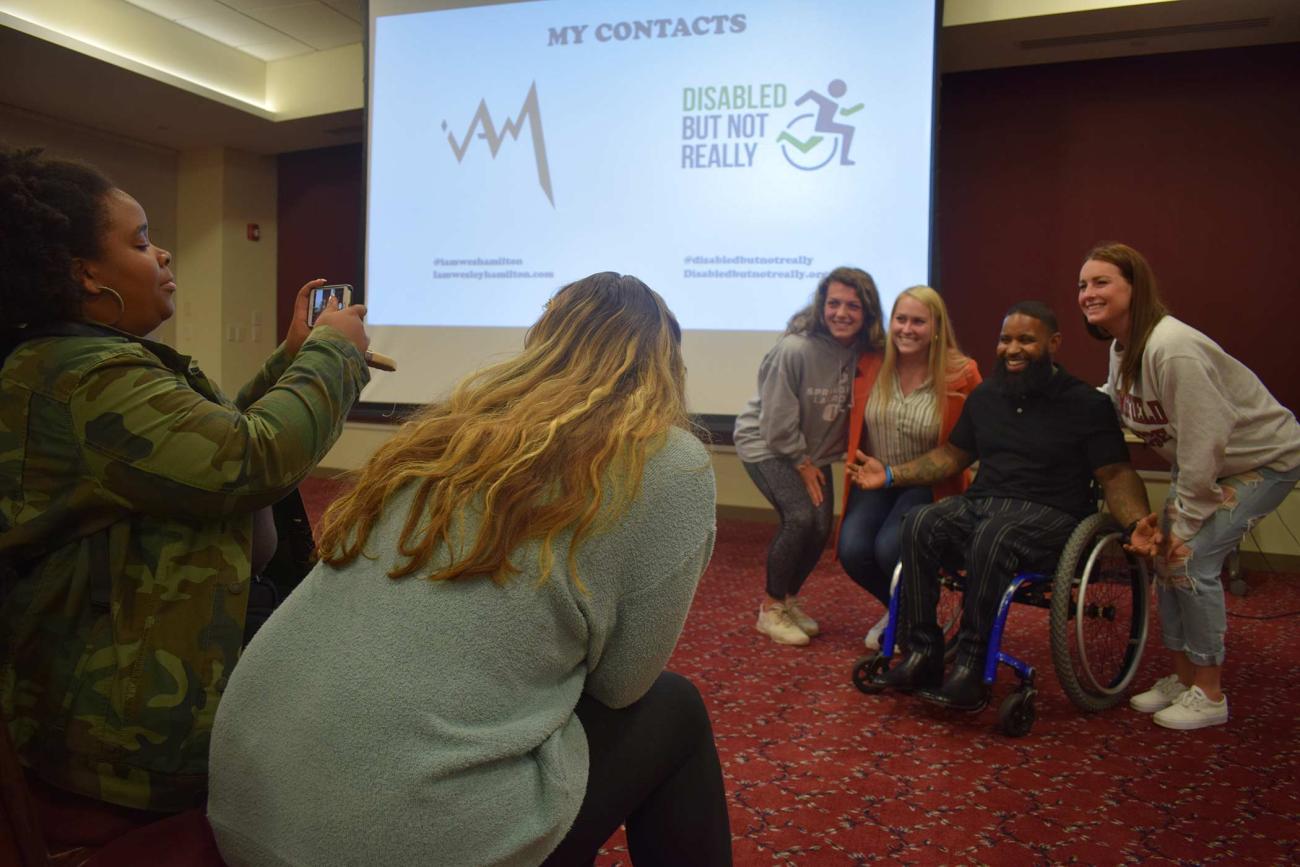Wesley Hamilton Speaks at Springfield College

By: Graciela Garcia
“I thanked him for putting me in this position… I never smiled until I was in a wheelchair.” Wesley Hamilton, a body builder and activist, has found light in a situation most people would find devastating and detrimental to their life. However, Hamilton had a different experience when he got shot by a stranger one day that left him permanently unable to walk.
Hamilton spoke about his experience at Springfield College in the Dodge room located in the Flynn. B Campus Union. The room was crowded as people sat on chairs, sat on the floor and stood lined up against the walls just to hear Hamilton speak about his experience. Many people have heard of his story through the Netflix show, “Queer Eye” which Hamilton starred an episode in during their 4th season. The show focuses on 5 gay men who help in different aspect of someone’s life that their loved ones might see their lacking and help them see the amazing person they already are.
Hamilton was the first person on the show where they focused on disability with his episode titled, “Disabled but Not Really.” which is inspired by Hamilton’s organization. “Disabled but Not Really” mission statement is to “instill in those with disabilities, a physically limitless mindset that breeds courage, confidence, and competence. Our core beliefs are in promoting fitness, providing the opportunity to become productive and self-serving while gaining the knowledge necessary for a living a nutritional lifestyle.” (https://disabledbutnotreally.org/our-mission/)
As an audience member, hearing and seeing him speak at the school was very exciting. I think when speakers come who have some sort of story and platform the way Hamilton does, it leaves a large impact. I can closely relate to the idea of coming from a place where disagreements are handled with violence instead of communication, as something I’ve come across. Hamilton really left the idea us with the idea that, sometimes when we go through adversity, we think, “why me?” in a negative connotation, instead of thinking, ‘well what can I do and accomplish now?”

